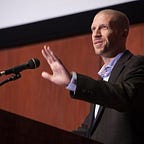Covid-19 Attitudes
Despite differing views, Democrats and Republicans report similar impacts of pandemic
by Peter K. Enns and Jonathon P. Schuldt
Partisans are sharply divided in their views as well as in their reported health behaviors related to the Coronavirus pandemic. But when it comes to how individuals say they have been impacted by the pandemic, partisanship hardly matters. Both Democrats and Republicans report being affected by the pandemic in very similar ways.
To measure the impact on people’s lives, we asked a nationally representative sample of 1,007 U.S. adults to name the one area of their life has been most affected by the pandemic. Our survey was fielded in late June, as millions were growing weary of living in semi-lockdown and confirmed cases began to re-surge.
The figure below displays the most common words used by Democrats and Republicans to describe the pandemic’s impact on their lives. The words are strikingly similar.
Responses that included some form of the word “social” (e.g., “social distancing,” “socializing”) topped the list of reported impacts for both Democrats and Republicans, mentioned by almost one in five respondents (about 21% of Democrats and 15% of Republicans). The next most common words were also nearly identical across partisan groups. For Democrats, “family” (e.g., “not seeing my family”, “worrying about my family members getting sick”) was the second most mentioned impact (15%), followed by “life” (e.g., “personal life,” “lifestyle”) (13%), “being” (e.g., “being shut in,” “not being able to go out”) (12%), and a tie between “work” (e.g., “working from home,” “work schedule”) and “go”/“going” (“not going out to eat as much”) (10% each). The exact same words topped the Republican list, just in a slightly different order. For Republicans, “go”/“going” occupied the #2 spot (13%), followed by “work” (13%), “life” (10%), “being” (10%), and “family” (9%).
Despite reporting similar experiences, partisans differ sharply on concern. We also asked our respondents how worried they were that they or someone in their family would become infected with the coronavirus. Democrats who said they were “very” or “extremely” worried outnumbered Republicans more than 2 to 1 (58% vs. 25%). Political independents fell in-between but closer to Democrats, with 48% expressing high levels of worry.
What does this mean? Our analysis offers an important caveat to the common refrain that Democrats and Republicans are “living in different worlds” when it comes to the coronavirus. By analyzing open-ended survey responses, we see that despite the large partisan gap on concerns about the virus itself, Democrats and Republicans use similar words to describe how their lives have been disrupted — with “social” impacts being front and center for both groups. Politics clearly influences the lens through which people view these common experiences, leading to different levels of concern about the health risks of the virus and different levels of compliance with mask wearing and other precautions. But both Democrats and Republicans report being affected by the pandemic in similar ways. It is crucial to recognize these common experiences. Remembering that both Democrats and Republicans have suffered challenges related to work, family, and social life may be an important first step on the path toward a unified response to the pandemic.
Peter K. Enns, Associate Professor of Government, Executive Director of the Roper Center for Public Opinion Research, and Co-Director of the Cornell Center for Social Sciences, Cornell University (@pete_enns)
Jonathon P. Schuldt, Associate Professor of Communication, Faculty Affiliate at the Roper Center, Cornell University (@JonathonSchuldt)
About the survey: Data from Enns and Schuldt (2020) Coronavirus Risk Perception Survey, Wave 1. The nationally representative survey of U.S. adults was conducted by NORC at the University of Chicago between June 25th and June 29th and was made possible by funding from the National Science Foundation (Award number 2029498). The percentages reported above are weighted estimates. Because Democrats outnumbered Republicans in our sample, word clouds display words that appeared 8 or more times in Democrats’ responses and 6 or more times in Republicans’ responses.
